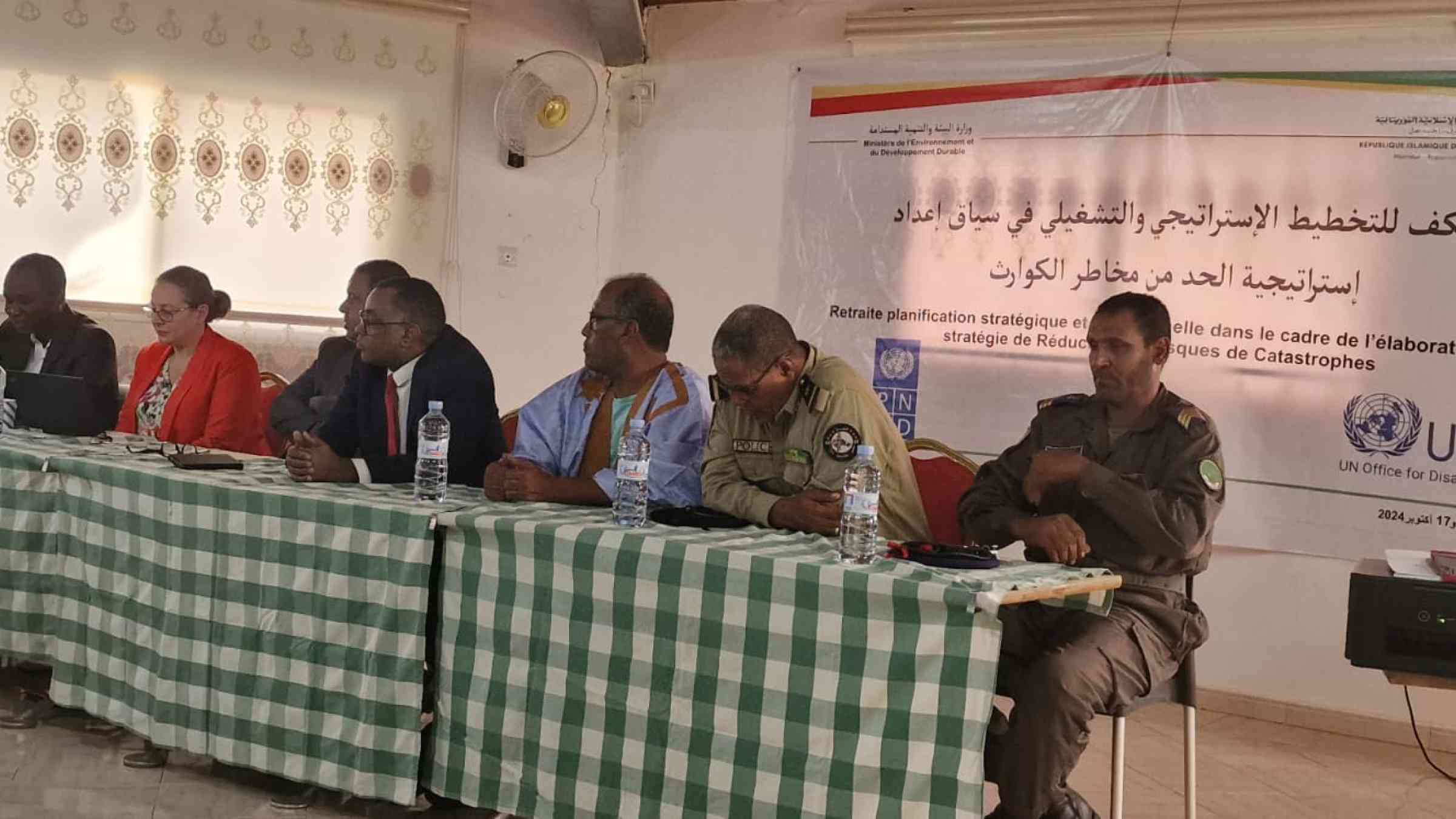Mauritania holds national technical validation workshop for the development of its first national disaster risk reduction strategy

Tiguent, October 15-17, 2024 – The Government of Mauritania, in collaboration with the United Nations Office for Disaster Risk Reduction, Regional Office for Arab States and the United Nations Development Programme, held a national technical validation workshop in Tiguent. The workshop marked a significant step toward the development of Mauritania’s first National Disaster Risk Reduction Strategy, a critical initiative aimed at enhancing the country's resilience to natural and manmade hazards.
The workshop was held in response to international recommendations and frameworks, including the Sendai Framework for Disaster Risk Reduction, which calls on all countries to develop national strategies for disaster risk reduction. For Mauritania, this initiative is particularly timely as the country has faced repeated climate-related disasters, such as droughts, floods, and extreme heat, over the past two decades. According to the World Bank, between 2000 and 2021, Mauritania ranked third among sub-Saharan African countries most affected by extreme weather events. The economic and human toll of these disasters has significantly impacted the country’s development progress.
Despite various legal and institutional measures put in place, including the establishment of an Inter-ministerial Committee for Emergency Situations and General Delegation for Civil Security and Crisis Management, the country has yet to fully achieve its disaster risk reduction goals. This workshop aimed to address the gaps by advancing the development of the National DRR Strategy, which will serve as the national reference framework for DRR in Mauritania.
“This workshop today is one of the most important steps towards adopting the national vision for disaster risk reduction and enhancing risk governance in the country, through completing the technical work to develop the national strategy for disaster risk reduction, its action plan, and the terms of reference for the National Platform for Disaster Risk Reduction,” said Nora Achkar, Chief of the UNDRR Regional Office for Arab States, in her opening remarks.
The workshop aimed to develop a strategic and operational plan for Mauritania's National Disaster Risk Reduction Strategy through a participatory approach. Its objectives included validating the national DRR diagnostic report, which assessed progress and gaps across sectors, and shaping a vision for DRR in Mauritania by 2030. Participants worked to establish the strategy's guiding principles, build consensus on implementation mechanisms, and create an operational plan with clear activities, responsible institutions, and timelines. A focus was also placed on forming a partnership framework for resource mobilization and developing a monitoring and evaluation system for the strategy.
Over the three-day workshop, participants from government, civil society, and various technical and financial partners actively contributed through group work and plenary sessions. Together, they reviewed the diagnostic findings, defined the strategic vision for 2030, and validated the national strategy's principles and priorities. By the workshop's end, they had also laid the groundwork for a detailed operational plan, outlining key activities, budget allocations, and performance indicators for future implementation.
Looking ahead, the next steps will focus on the technical validation of the operational plan and the establishment of a multisectoral institutional framework to oversee the implementation of the strategy. This strategy is expected to guide Mauritania’s efforts in reducing disaster risk, aligning national initiatives with global frameworks such as the Sendai Framework and the Paris Agreement on climate change.
The successful completion of this workshop sets the stage for Mauritania’s enhanced preparedness and resilience, protecting communities from future disasters while supporting sustainable development.